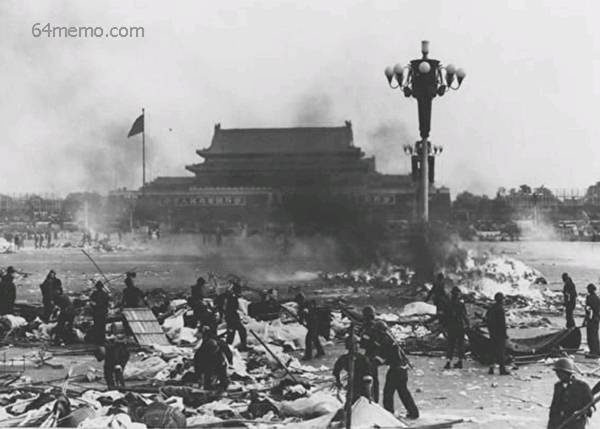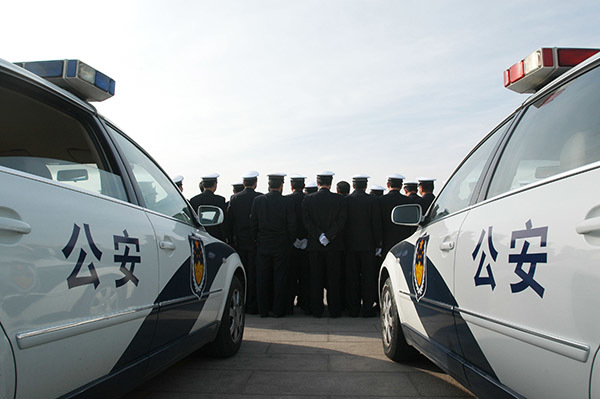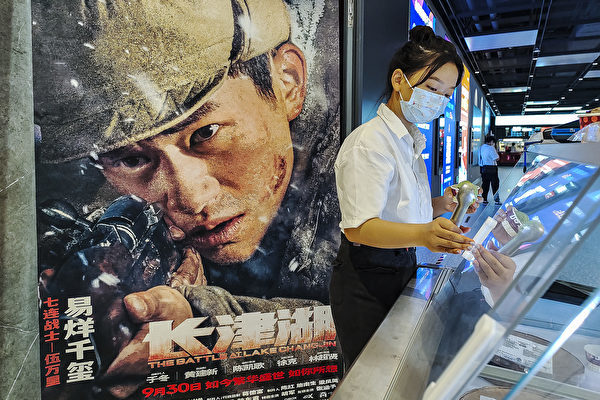Many out-of-town students living in tents on Tiananmen Square died inside them. (Photo: DaJiYuan ImageLib / Dajiyuan)
[People's Daily News] (Reporter Cheng Xi) June 4, 2025, marks the 36th anniversary of the Chinese Communist Party's June Fourth massacre. Senior Chinese media figure Chang Ping previously published a commemorative article titled "A Letter from Tiananmen Square" in Deutsche Welle. In this article, he recalls that a high school friend sent him a letter from Beijing at the end of May 1989, inviting him to come to the city. The friend wrote that they would "fight to the end" and urged, "Come quickly, the Square needs you."
Chang Ping noted that the letter was from a brother who slept in the bunk below him. The letter stated that the student protest movement had reached a critical juncture, with the government mobilising troops to prepare for a crackdown. However, they would not back down and would fight to the end. He urged Chang to come quickly, as the Square needed him!
Due to the chaos at the time, Chang Ping did not respond to his friend's letter. Nevertheless, he seriously considered the proposal. By that time, the Beijing authorities had already declared martial law, and citizens were taking to the streets to block military vehicles, while many students from other universities were rushing to Beijing to show their support.
Ultimately, Chang Ping decided against going to Beijing and instead followed his original plan to spread the ideals of democracy and freedom in factories and rural areas in the suburbs of Chengdu. He concluded that the CCP's bloody suppression was inevitable and that the time left for the movement was limited. He believed that in this limited time, "more people should understand why we are protesting and what true democracy and freedom are."
Chang Ping disclosed that his high school friend remained at Tiananmen Square until the very end, where he was shot in one leg. After being rushed to the hospital, the friend underwent surgery promptly. However, police from the Chinese Communist Party insisted on taking him away for interrogation. The doctor vehemently opposed this, arguing that it would hinder his recovery. Despite this, the friend was taken away. Chang Ping noted that his friend had a stubborn personality and refused to comply. It was only about a day later that he was returned to the hospital.
As a result, the friend was left with a disability, with one leg shorter than the other.
Chang Ping was unable to ascertain the connection between the police's brutal interrogation and his friend's disability.
The AI robot provided him with some insights.
1. Gunshot wounds and surgical damage to bones or soft tissues:
- A gunshot can cause fractures (such as in the femur or tibia) or severe soft tissue injuries. Surgical intervention may involve fixing fractures, removing bone fragments, or repairing soft tissues. If the bones heal improperly (for instance, through shortened or angular healing), this can result in a reduction in leg length.
- Additionally, if there is bone loss during surgery (such as the removal of bone fragments) or if fixation devices (like plates or intramedullary nails) are improperly placed, this can also affect leg length.
2. Disruption of postoperative care:
- The protester being taken away for interrogation after surgery may have interrupted essential postoperative care (such as fixation, anti-inflammatory treatment, or infection prevention). This could lead to complications such as wound infections, fracture displacement, or delayed healing, ultimately affecting normal bone recovery and resulting in discrepancies in leg length.
……
5. Nerve or vascular damage:
- Gunshot wounds can potentially damage the nerves or blood vessels in the leg, which may affect muscle function or bone growth. If nerve damage results in muscle weakness or paralysis, it can lead to functional discrepancies in leg length, even if the actual bone length does not change.
- Damage to blood vessels may impair the blood supply necessary for bone healing, resulting in limited bone growth.
6. Insufficient or improper rehabilitation:
- If standardised rehabilitation training (such as physical therapy or functional exercises) is not undertaken after discharge, it may lead to joint stiffness, muscle atrophy, or gait abnormalities, which can present as functional leg length discrepancies.
- If patients avoid using the injured leg due to pain or psychological factors, this may result in a compensatory gait.
Chang Ping remarked to the reporter who interviewed him, "The person who was shot could also be me. I am a survivor of the massacre."
When asked about the impact of the June Fourth incident on him, Chang Ping responded, "Humiliation, as well as the randomness of being alive and the struggle in despair."
Renowned sinologist and emeritus professor at Princeton University, Lin Peirui, attended the opening ceremony of the Los Angeles June Fourth Memorial on June 2. In an interview with the Central News Agency, he remarked, "June Fourth not only claimed thousands of lives but also instilled a sense of fear within Chinese society. This fear fosters self-censorship among individuals, becoming a deeply ingrained habit where everyone avoids sensitive topics to safeguard their own interests."
Lin Peirui noted that after June Fourth, belief in socialism diminished; it became merely a beautiful slogan, and the moral foundation was entirely eroded.
Chang Ping is a prominent media figure in China and a participant and witness of the June Fourth Movement. He serves as the chief curator of the June Fourth Memory and Human Rights Museum. Since late 2010, he has been prohibited from publishing any articles in mainland Chinese media. In 2011, he established the current affairs magazine 'Sunshine Times' in Hong Kong, but the Hong Kong government denied him a work visa. As a result, he has been residing in Germany as a visiting writer ever since.











News magazine bootstrap themes!
I like this themes, fast loading and look profesional
Thank you Carlos!
You're welcome!
Please support me with give positive rating!
Yes Sure!